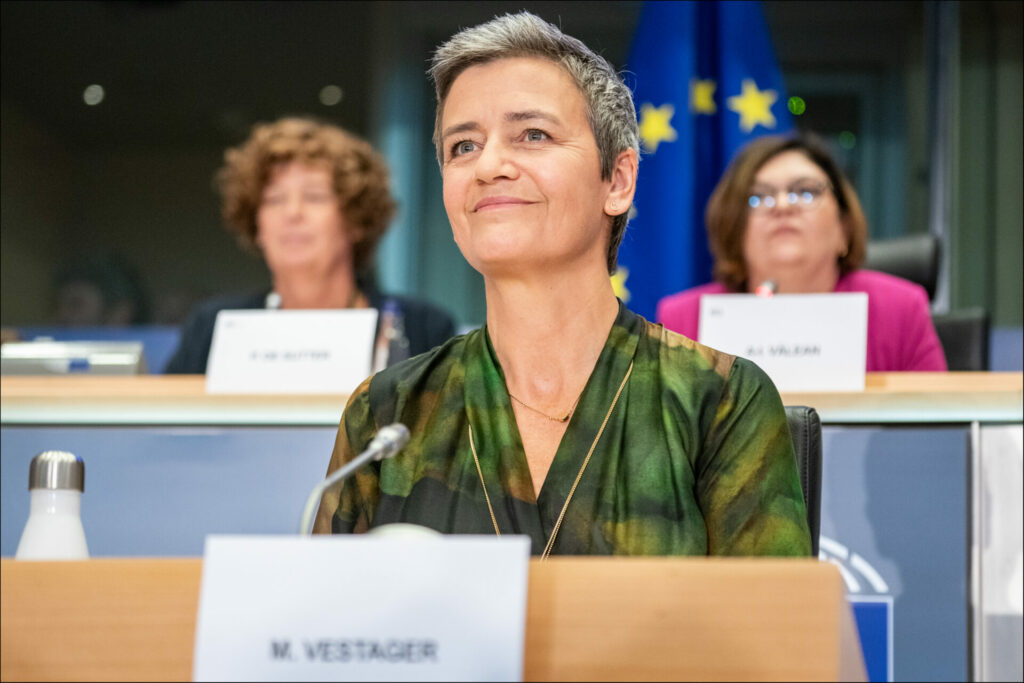EU Competition Chief Margrethe Vestager is taking on Apple again after the European Commission accused the tech giant of prioritising its own contactless payment system via Apple Pay and impeding competitors.
"Today we have send [sic] Apple a statement of objections. We are now concerned that Apple may have illegally distorted competition in the market for mobile wallets on Apple devices"
Following Vestager's announcement, Apple could face a fine worth up to 10% of its annual turnover if the complaint proves valid.
The issue comes down to Apple's chip system. Apply Pay uses an NFC chip ( Near Field Communication) in Apple products, such as iPhones and Apple Watch, which allows users to make payments by holding their devices against a pin terminal.
Unfair for users
The European Commission believes that the use of this chip is unfair competition as it excludes other payment companies, such as banks or PayPal, that don't have access to the chip and must therefore use Apple Pay.
For example, a customer using an ING bank in Belgium can make a payment through an Apple device, but ING would have to make a small payment to Apple.
Apple's system hinders innovation, as Apple Pay competitors with new ideas for mobile payments would have to evade Apple Pay, according to the Commission.
Related News
- Deep Tech: European Union trails behind the US
- Sounds like you? Belgians spend over 3 hours per day on smartphones
That would give consumers less choice given the dominance of Apple products in the market. Vestager stressed the importance of mobile payments in a digital economy, saying "it is important... that consumers benefit from a competitive and innovative payments landscape."
For Apple, security is a crucial element in its payment technology. The company said that its contactless payment technology is created to prevent fraud and that opening up the system could expose it to misuse.
DMA
Margrethe Vestager has been well known for taking on tech giants and has filed several antitrust claims against what she defines as 'tech gatekeepers' such as Apple, Google, Facebook and Amazon.
Her work on this is also reflected in the Digital Markets Act, the EU's new antitrust legislation designed to curb the power of big tech companies, giving the EU more power to regulate anti-competitive practices by big tech and Silicon Valley.

